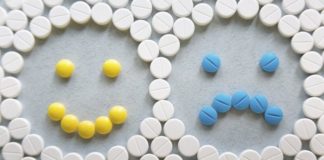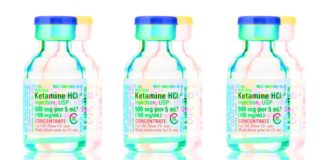Tag: antidepressants
Review Documents Severe Withdrawal Effects of Psychiatric Drugs
Researchers find that most psychiatric drugs cause severe withdrawal despite attempt s to gradually decrease the dosage.
New Analysis: Antidepressants Still Linked to Suicide
“This is remarkable for drugs that are used to treat depressive symptoms,” write the researchers.
12 Essential Facts About Psychiatry
With these twelve facts, you are equipped to defend against the misinformation propagated by academic psychiatry, Big Pharma, and the laypeople they target. You are encouraged to use this knowledge to (firmly but respectfully) challenge statements you hear in passing or from loved-ones such as “He is mentally ill,” “I have a chemical imbalance and these drugs help correct it,” or any other commonly accepted falsehoods that the above facts expose.
New Algorithms Fail to Predict Antidepressant Treatment Outcomes
Researchers suggest that because most antidepressant “success” is due to the placebo effect, they may never find a way to predict outcomes.
No Good Evidence That Antidepressants Prevent Relapse
Trials of antidepressants for relapse prevention are confounded by withdrawal effects caused by the drugs.
Antidepressant Misinformation Promoted on Popular Websites
A new study indicates that popular online resources do not accurately present the scientific evidence on the risks and benefits of antidepressants.
Antidepressant Use Continues to Climb Among Youth on Medicaid
New study finds that Medicaid enrolled youth were 14 times more likely to be on an antidepressant in 2014 than in 1987.
Researchers Find Paroxetine Harms Developing Brain
Researchers at Johns Hopkins test paroxetine on developing brain cells and discover numerous neurotoxic effects.
Psychiatry and the Stupidification of America
There are three steps to modern psychiatry’s successful business formula: 1. Get people to think that they’re stupid even though they’re smart. 2. Train them to actually think stupidly. 3. Directly stupidify them with chemicals.
Suicide Warning on Antidepressant Label is Justified, Researchers Say
Researchers confirm that the suicide warning for antidepressants is justified by the evidence and that claims that the warning is harmful lack support.
How Dissenting Voices are Silenced in Medicine
Researcher criticizes the many ways opposing viewpoints and dissenting voices are squashed in the field of medicine.
Researchers: Antidepressant Withdrawal, Not “Discontinuation Syndrome”
Researchers suggest that the pharmaceutical industry had a vested interest in using the term “discontinuation” in order to hide the severity of physical dependence and withdrawal reactions many people experience from antidepressants.
Is There a Small Group for Whom Antidepressants Are Effective?
In a new study, researchers found no evidence of antidepressant group variance, which means that there's no particular group of patients who improve more than others on the drug.
Higher Drop-Out Rates for Those Taking Antidepressants
A review of 73 antidepressant studies finds that 12% more people drop out of clinical trials when taking antidepressants than when taking placebo, evidence that many find the adverse effects of antidepressants difficult to tolerate.
Researchers Set the Record Straight on Controversial Zoloft Study
An issue of Lancet Psychiatry is devoted to clarifying the lack of efficacy for Zoloft (sertraline).
Ketamine for Harmful Drinking: A Look at the Data
New research contends that ketamine can reduce problematic alcohol use but does the data support the claims?
Researchers Address Dangers of Polypharmacy and Inappropriate Medication Use
A new special issue brings together articles exploring the harmful effects of simultaneous multiple medication use.
How Antidepressants Shape Young Women’s Sense of Self
Young women’s narratives indicate ways antidepressants have shaped their sense of self.
No Matter Which Measure You Use, Antidepressants Aren’t That Effective
Researchers compared the efficacy of antidepressants using different rating scales and found them to be no different—just slightly better than placebo, and not meeting the criteria for clinical significance.
Increased Antidepressant Use Does Not Decrease Depression Prevalence in Older Adults
The use of antidepressants has risen quickly among older adults but the rate of depressive symptoms in this population has not declined as a result.
Fear and Belief in “Chemical Imbalance” Prevent People from Coming Off...
Researchers interviewed people who were given medical advice to discontinue antidepressants.
Training Health Workers in Therapy Leads to Improvements and Less Medication...
A Nigerian study finds that more than three-quarters of patients improved, even when only 13% were prescribed medication.
Fluoxetine Not Helpful for Children with Autism
A clinical trial finds Prozac no better than placebo for improving repetitive behaviors.
Researchers Challenge Evidence for Antidepressants in Youth
Researchers shed light on the precarious nature of evidence from efficacy trials of antidepressant medication to treat symptoms of major depressive disorder in children and adolescents.
NICE Guideline Update Acknowledges Severe Antidepressant Withdrawal
A new update to the NICE guideline for depression suggests providers discuss long-term, severe antidepressant withdrawal symptoms.

































